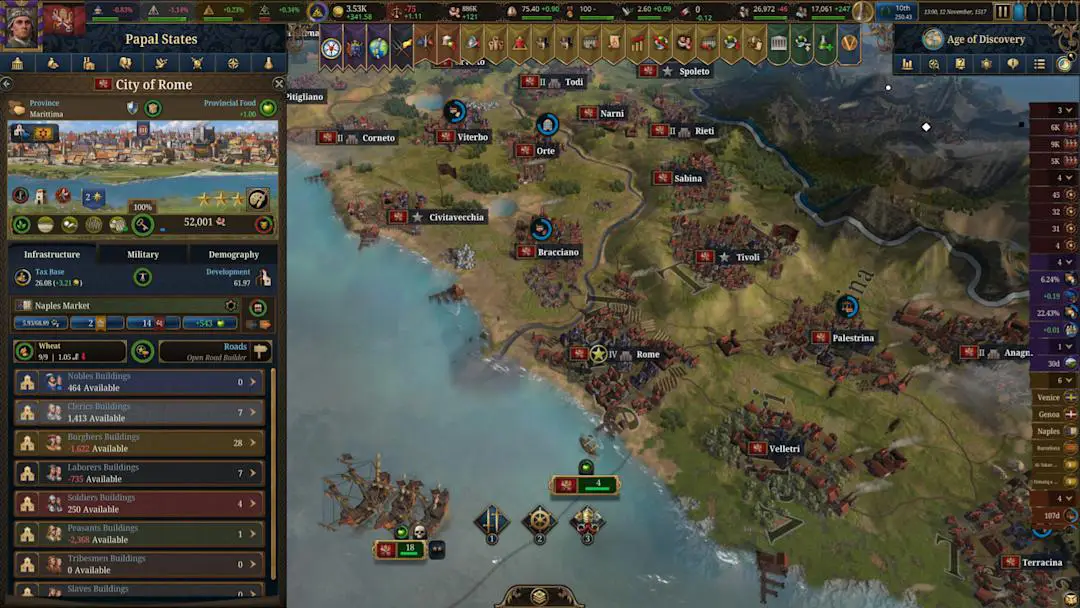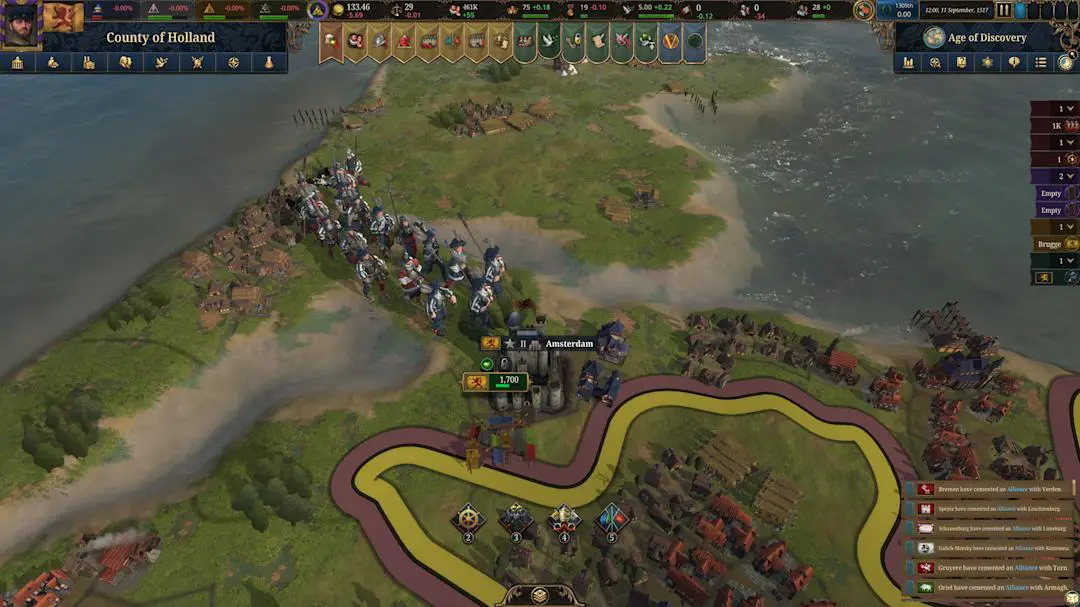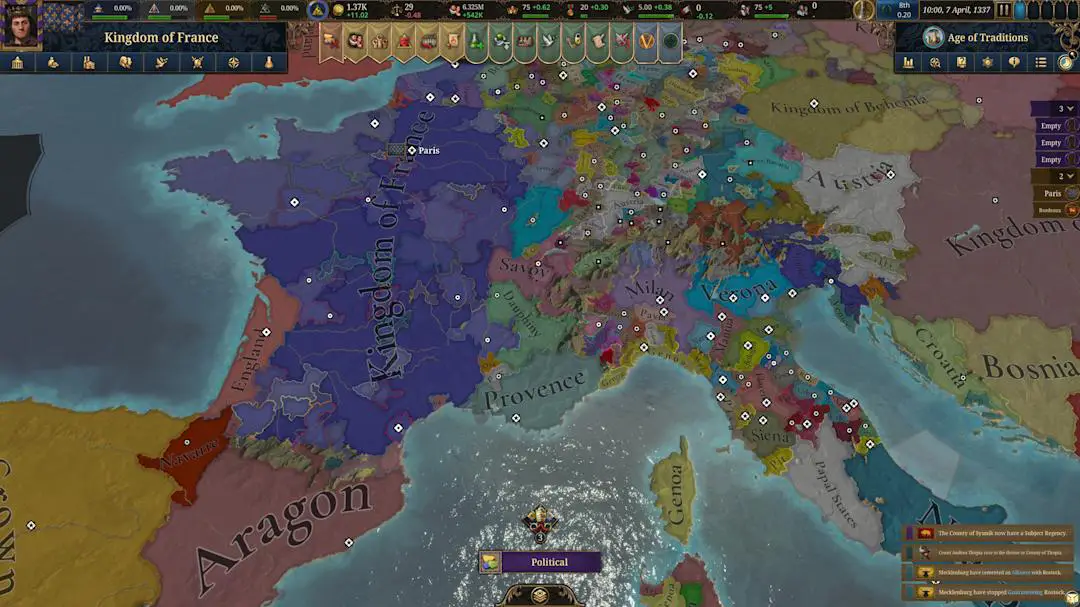Paradox Interactive has officially announced Europa Universalis V, the highly anticipated sequel to its flagship grand strategy series. Unveiled with a striking new announcement trailer that offers a cinematic glimpse into the game’s expanded timeline and dynamic world, the next chapter in the Europa Universalis franchise promises a transformative leap for strategy enthusiasts. Developed by Paradox Tinto, the game introduces sweeping changes to gameplay, simulation depth, and historical immersion.
A Living World from 1337 Onward
Set to begin in 1337, more than a century earlier than Europa Universalis IV, EU V expands the historical timeline, allowing players to lead nations through nearly 500 years of geopolitical evolution. This earlier start introduces a deeply medieval world order, providing fresh dynamics in feudalism, early religious conflicts, and technological progression.
Unlike the static, event-driven world of EU IV, the new game introduces “living populations” (or “pops”) that shape society from the ground up. Each pop has specific needs, loyalties, and productivity, requiring players to adapt policy and economic strategy to shifting demographics. Climate and logistics now also play critical roles in development and warfare, adding layers of strategic depth absent from the previous title.
Goodbye Mana, Hello Realism
One of the most dramatic changes from Europa Universalis IV is the complete removal of the “mana” system — abstract points used for administrative, diplomatic, and military actions. Instead, EU V focuses on a more grounded system involving real populations, estates, and government institutions.
Diplomacy, technological advancement, and reforms now depend on your societal structure and the cultural values you promote. The newly introduced Societal Value system challenges players to guide their civilizations along ideological spectrums such as communalism vs. individualism and traditionalism vs. innovation — affecting everything from governance to colonization policy.

Estate System Overhaul and Internal Politics
While EU IV featured estates as a somewhat static modifier system, EU V integrates estates more organically with the game world. Estates now interact with your population composition, influencing production, stability, and political risk. Players must manage shifting alliances between estates and their competing demands, creating a far more dynamic internal political landscape.
Rebellions and civil strife, for instance, no longer arise solely from high unrest or low legitimacy but from discontent within specific societal groups who may have been previously loyal.
Warfare: Depth Over Numbers
Warfare in Europa Universalis V has been significantly reimagined to emphasize depth, planning, and realism over raw numerical superiority. In contrast to EU IV’s focus on regiment stacking and battle tactics heavily influenced by tech level and morale bars, EU V introduces new logistics, terrain, and supply systems that make strategic planning more crucial than ever.

Armies now require detailed planning around supply lines, regional climate, and population support. For example, marching a massive army through hostile, sparsely populated terrain could result in starvation and collapse long before battle begins. Naval invasions and blockades similarly demand attention to infrastructure and logistical preparation, elevating them from simple maneuvering to complex operations.
Military units are also more closely tied to population types and societal structure—raising elite troops may deplete your nobility’s manpower or wealth, which has broader political consequences. This system mirrors and expands on mechanics seen in Victoria 3, offering a deeper integration between society and military might.
Community-Driven Development
Learning from past experiences, particularly the reception of Imperator: Rome, Paradox Tinto has adopted a more transparent and community-focused development approach for Europa Universalis V. Through initiatives like “Tinto Talks,” the developers have actively engaged with the player base, incorporating feedback to refine game mechanics and systems. This collaborative process has led to significant changes, such as a more fluid relationship between population types and estates, enhancing the game’s depth and replayability.

Availability and Future Updates
While a specific release date has not been announced, Europa Universalis V is currently available for wishlisting on Steam. Paradox Interactive encourages fans to stay connected through their official channels for upcoming updates, including behind-the-scenes content and exclusive in-game bonuses.
Visit the official website for more information.

